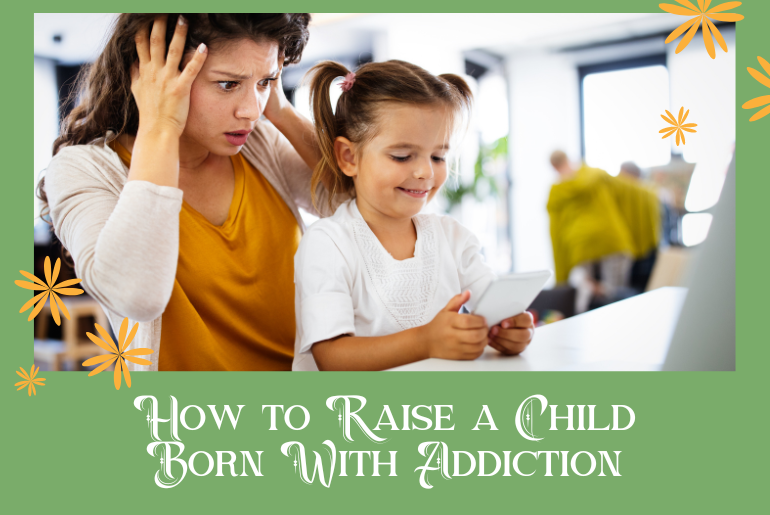As a parent, I’ve often caught myself turning everyday situations into impromptu lectures for my children. Whether it’s about the importance of brushing their teeth, being kind to others, or making wise choices, I’ve found myself slipping into lecture mode more often than I’d like to admit. And I know I’m not alone. Many parents find themselves defaulting to lectures as a way to impart wisdom and guidance to their children. But have you ever wondered why parents have a tendency to turn everything into a lecture?
I’ve come to realize that the reasons behind this behavior are multifaceted. It’s not just about being bossy or wanting to assert authority over our children. Deeper underlying factors influence this parenting behavior, such as cultural and generational norms, fear of consequences, lack of effective communication skills, control issues, and societal expectations. Understanding these factors can help us gain insight into why we tend to lecture our children and how we can communicate with them more effectively and meaningfully. So, let’s dive into the reasons why parents turn everything into a lecture and explore alternatives to build healthy parent-child relationships based on trust and open communication.
The Parenting Mindset
I’ve caught myself numerous times slipping into lecture mode with my children. For instance, when my son forgets to do his homework or my daughter leaves her toys scattered around the house, my first instinct is to lecture them about responsibility and cleanliness. I feel the need to remind them repeatedly of their responsibilities and the consequences of their actions. While my intentions are well-meaning, I’ve realized that this approach may not always effectively convey my message.

Upon reflection, I’ve realized that my parenting mindset is rooted in my deep sense of responsibility as a parent. I want my children to grow up to be responsible, respectful, and successful individuals, and lecturing is a way to ensure that. However, I’ve learned that constantly lecturing my children may lead to communication breakdowns, resistance, or rebellion. It can create a power dynamic where my children feel less empowered to express their thoughts and opinions, which is not conducive to building a healthy parent-child relationship based on trust and understanding.
Cultural and Generational Factors
Another factor that influences parenting style is cultural background. Coming from a culture where authoritative parenting styles are more common, I’ve been exposed to the belief that parents are authority figures who are expected to provide guidance and discipline through lectures and strict rules. I remember my own parents lecturing me about the importance of obedience, respect, and academic success. As a result, I’ve noticed that I tend to default to this approach with my own children, following the cultural norms I grew up with. Another scene is the Chinese parents and dating.

Similarly, generational factors also come into play in my parenting approach. I belong to a generation where authoritative parenting styles were more prevalent. Lecturing was a common form of discipline and guidance that I experienced growing up. However, I’ve come to realize that times have changed, and younger generations may have been raised in an environment where more collaborative and communicative parenting styles were encouraged. This has made me reflect on whether my lecturing approach aligns with my parenting goals and values.
Fear of Consequences
As parents, we are often driven by a genuine concern for our children’s well-being and success. We want to ensure they make the right choices and avoid negative consequences. This fear of consequences can sometimes lead us to turn everything into a lecture as a way to instill a sense of caution or deter our children from making mistakes.
For example, when my daughter expressed her desire to participate in a school event that I thought was too risky, my initial response was to lecture her about the potential consequences and dangers involved. I wanted to protect her and make sure she didn’t put herself in harm’s way. However, I realized that my fear of consequences dominated the conversation, and my daughter felt defensive and unheard. It became clear to me that constant lecturing based on fear of consequences was not an effective way to communicate and guide my child.

It’s important to acknowledge that while our concern for our children’s safety and well-being is valid, constant lecturing can have negative effects. It can create fear, anxiety, and a sense of mistrust in the parent-child relationship. It may also inhibit our children from taking healthy risks, learning from their mistakes, and developing their decision-making skills.
Instead of relying solely on fear-based lectures, we can adopt a more balanced approach. This can involve discussing potential consequences in a calm and non-judgmental manner, allowing our children to express their thoughts and concerns, and involving them in problem-solving and decision-making processes. By fostering open communication, mutual respect, and trust, we can create a supportive environment where our children feel heard, understood, and empowered to make responsible choices.
Lack of Effective Communication Skills
Another reason why parents may turn everything into a lecture is a lack of effective communication skills. Parenting can be challenging, and sometimes we may resort to lecturing as a default mode of communication when we are unsure how to convey our message to our children effectively.
When my son struggled to manage his time effectively for his schoolwork, I repeatedly lectured him about the importance of time management without truly understanding his challenges and concerns. I realized that I was not effectively communicating with him, and my lectures were not having the desired impact. It made me realize the importance of honing my communication skills as a parent.

Effective communication involves not just talking but also actively listening to our children. It requires us to understand their perspectives, thoughts, and feelings without judgment. It involves expressing ourselves clearly, using age-appropriate language, and avoiding negative or critical tones. It also involves being open to feedback and actively engaging in two-way communication.
Improving our communication skills as parents can create a more conducive environment for meaningful conversations with our children. This can involve asking open-ended questions, allowing our children to express themselves without interruptions, and validating their emotions and experiences. It can also involve using positive reinforcement, praise, and encouragement to motivate our children toward positive behaviors. Effective communication can foster trust, mutual understanding, and a stronger parent-child bond.
Lack of Trust and Control Issues
We may sometimes turn everything into a lecture due to underlying trust and control issues. Trust is a fundamental aspect of any relationship, including the parent-child relationship. However, we, parents, may struggle with trust issues due to our fears, past experiences, or desire to control our children’s choices and actions.
Also, if we have experienced disappointment or betrayal in the past, we may find it challenging to trust our children fully. This lack of trust can manifest in constant lectures as we try to monitor and control their every move, fearing they may repeat the same mistakes or make poor choices. We may also feel the need to assert control over our children’s lives to ensure that they follow a path that aligns with our expectations and desires.

However, we must remember that trust is a two-way street. Constantly lecturing our children and failing to trust them can create a negative cycle where they feel suffocated, rebellious, or resentful. It can also hinder their growth, independence, and ability to decide independently.
Building trust with our children requires us to let go of control and allow them to learn from their experiences, even if it means making mistakes. It means trusting that we have instilled the right values and guiding principles in them and that they can make responsible choices. It also means being open to communication, actively listening to their perspectives, and validating their emotions and opinions.
Fear of Judgment from Others
Parents may resort to turning everything into a lecture in fear of judgment from others. As parents, we are often bombarded with societal expectations, opinions from extended family members, friends, or even strangers, and social media influences. This can create immense pressure to conform to certain parenting standards or portray a perfect image of our parenting skills.

We may feel the need to justify our parenting choices to others by constantly preaching to our children, even if it may not be the most effective or meaningful way of communicating with them. Remember that every child and family is unique; what works for one may not work for another. Constantly lecturing our children out of fear of judgment from others can create a stressful and tense atmosphere at home and may not necessarily result in the desired outcome. It’s essential to prioritize our children’s well-being and our own parenting values over external judgments.
We can create a more authentic and genuine parenting approach by letting go of the fear of judgment from others and focusing on building healthy and meaningful relationships with our children. This involves trusting our instincts, listening to our children’s needs, and finding a balance between guidance and autonomy. It’s okay to make mistakes and learn from them as long as we strive to be the best version of ourselves as parents.
Impact on Parent-Child Relationship
When parents turn everything into a lecture, it can significantly impact the parent-child relationship. Constant lecturing can create a power dynamic where the parent takes on a role of an authoritarian figure, and the child may feel disempowered, unheard, or distant from their parents. This can negatively impact the parent-child relationship and hinder healthy communication and connection.
Frequent lectures can also result in children feeling overwhelmed, frustrated, or rebellious, leading to a breakdown in the parent-child relationship. Children may tune out or become resistant to constant lecturing, as it may come across as nagging or preaching rather than genuine guidance or support. This can lead to strained relationships, decreased trust, and difficulties building strong bonds with our children.

Moreover, constant lectures can also inhibit children’s ability to develop critical thinking, problem-solving, and decision-making abilities. Instead of empowering our children to learn from their mistakes and make responsible choices, constant lecturing can lead to a dependence on parental guidance and a lack of autonomy. This can affect their confidence, self-esteem, and overall development.
We should be mindful of the impact of constant lecturing on the parent-child relationship. It’s crucial to strive for a healthy balance between guidance and autonomy, actively listening to our children’s perspectives and fostering open communication. Creating a supportive and trusting environment where our children feel valued, respected, and empowered to make choices and learn from their experiences is also important.
Alternatives to Lecturing
While lecturing may be a common approach some parents use, there are alternative ways to effectively communicate and guide our children without resorting to constant lecturing. Here are some alternatives to consider:

1. Active Listening
One of the most effective ways to communicate with our children is to listen to them actively. This means giving them our full attention, empathizing with their feelings, and validating their perspectives. By actively listening, we show our children that we value their opinions and are willing to understand their points of view, which can lead to more open and honest communication.
2. Empowerment through Choices
Giving our children choices empowers them to make decisions and learn from the consequences. Instead of constantly lecturing them on what they should or shouldn’t do, we can offer them options and discuss the potential outcomes of each choice. This promotes critical thinking skills and problem-solving abilities and encourages them to take ownership of their actions.
Collaborative Problem-Solving
We can involve our children in collaborative problem-solving instead of imposing solutions. This approach encourages them to brainstorm solutions, weigh pros and cons, and actively participate in finding a resolution. This fosters their independence and decision-making skills and builds their confidence in tackling challenges.
Setting Clear Expectations and Boundaries
Setting clear expectations and boundaries with our children can provide them with a sense of structure and guidance. By establishing rules, limits, and consequences in a respectful manner, we can help them understand the expectations and consequences of their actions without constant lecturing.
Positive Reinforcement
Recognizing and reinforcing positive behaviors and achievements can be a more effective approach than constant lecturing. Praising and rewarding our children for their efforts, achievements, and positive behaviors can encourage them to continue those behaviors and reinforces positive communication and reinforcement.
FAQs
Why do parents always turn everything into a lecture?
Parents may turn everything into a lecture as a way to teach, guide, or share their wisdom and experiences with their children. They may also do so out of habit, concern, or a desire to instill values and lessons in their children.
Why do parents lecture instead of listening to us?
Parents may lecture instead of listening to their children because they may feel a sense of responsibility to impart knowledge, correct behavior, or guide their children’s choices. They may also have concerns or fears about their children’s well-being and use lectures as a way to express them.
How can I make my parents stop lecturing me?
Communicating openly and respectfully with your parents can be helpful in making them understand your perspective. You can express your feelings, concerns, and desire for more effective communication. Finding common ground and suggesting alternative ways of addressing issues can also be effective in reducing lectures from parents.
Do parents lecture because they are trying to control us?
While some parents may lecture as a way to exert control, it is not always the case. Parents may lecture out of genuine concern, desire to teach values or guide their children in making better choices. It’s important to understand their intentions and communicate with them to have a better understanding.
How can parents effectively communicate without lecturing?
Parents can effectively communicate without lecturing by actively listening to their children, asking open-ended questions, expressing empathy, and respecting their opinions and feelings. They can also use positive reinforcement, offer guidance, and engage in two-way conversations to encourage meaningful communication.
Why do parents repeat the same lectures over and over again?
Parents may repeat the same lectures because they want to emphasize important points, reinforce values, or correct behaviors that they believe need repetition. They may also do so out of frustration or concern when they feel their message is not getting through.
How can I express my opinion without my parents turning it into a lecture?
You can express your opinion to your parents using respectful and assertive communication. Avoid being defensive or confrontational; instead, express your thoughts calmly and clearly. It can also be helpful to explain that you appreciate their advice, but you would like to have a two-way conversation rather than a lecture.
Are there any benefits to parents lecturing us?
Yes, there can be benefits to parents lecturing their children. Lectures can serve as a way for parents to share their experiences, provide guidance, instill values, and teach life skills. They can also help children learn from their parent’s wisdom and make better choices in the future.
How can parents strike a balance between lecturing and listening to their children?
Parents can strike a balance between lecturing and listening to their children by being mindful of their communication style, actively listening to their children’s concerns and opinions, and engaging in two-way conversations. They can also encourage their children to express their thoughts and feelings openly without judgment and show respect for their perspectives.
Is it normal for parents to lecture frequently?
Lecturing frequency may vary among parents and families. Some parents may lecture more frequently than others due to their communication style, cultural background, or personal beliefs. However, excessive lecturing without active listening or respecting their children’s opinions may negatively impact parent-child communication.
Conclusion
As parents, we must reflect on our communication style and be mindful of its impact on our children. Constantly turning everything into a lecture can negatively affect the parent-child relationship, hinder effective communication, and even impact our children’s self-esteem. Understanding the reasons behind this behavior can help us change our approach positively. By exploring and implementing alternative methods, we can foster healthy communication, build trust, and promote a positive parent-child relationship, ultimately supporting our children’s growth and development into confident and independent individuals.

I am Christiana Williams, a multitasking sociologist and proud mama of three. With a passion for exploring the complexities of modern parenting, I bring my unique perspective and expertise to the table. As a seasoned parent and seasoned sociologist, I have a wealth of knowledge and experience to share. From the ups and downs of raising a family to the latest research on child development, I am on a mission to help other parents navigate the joys and challenges of parenthood. Get ready to be inspired, informed, and entertained as I share my insights and adventures as a parent.




